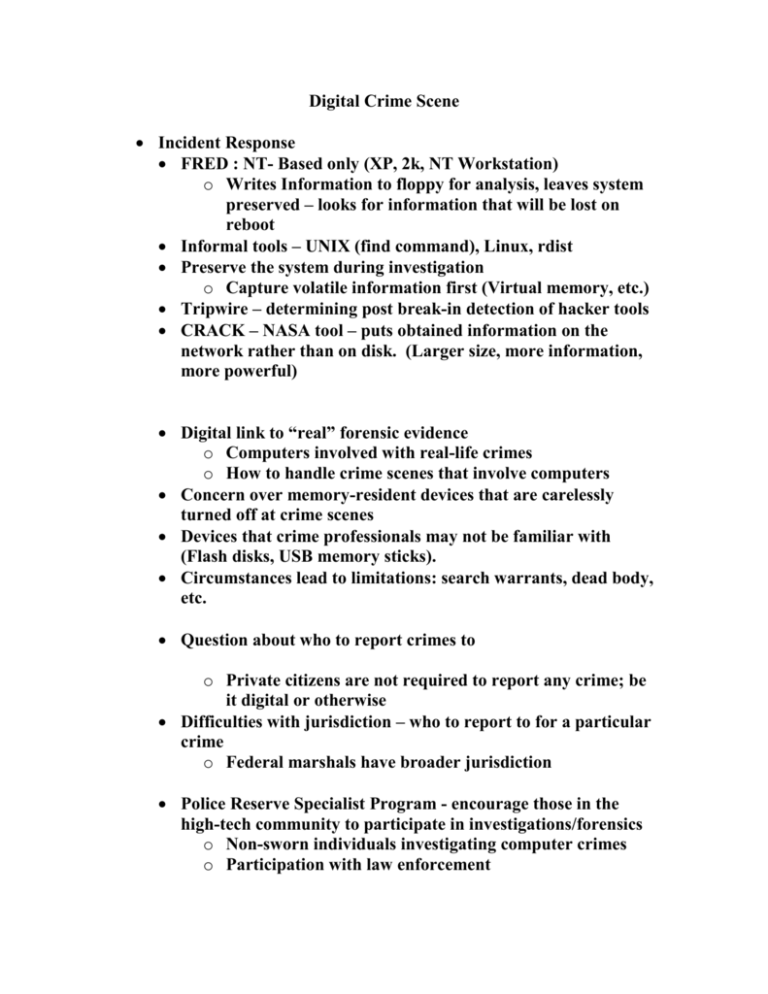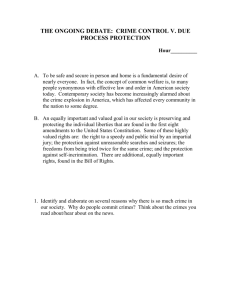Digital Crime Scene
advertisement

Digital Crime Scene Incident Response FRED : NT- Based only (XP, 2k, NT Workstation) o Writes Information to floppy for analysis, leaves system preserved – looks for information that will be lost on reboot Informal tools – UNIX (find command), Linux, rdist Preserve the system during investigation o Capture volatile information first (Virtual memory, etc.) Tripwire – determining post break-in detection of hacker tools CRACK – NASA tool – puts obtained information on the network rather than on disk. (Larger size, more information, more powerful) Digital link to “real” forensic evidence o Computers involved with real-life crimes o How to handle crime scenes that involve computers Concern over memory-resident devices that are carelessly turned off at crime scenes Devices that crime professionals may not be familiar with (Flash disks, USB memory sticks). Circumstances lead to limitations: search warrants, dead body, etc. Question about who to report crimes to o Private citizens are not required to report any crime; be it digital or otherwise Difficulties with jurisdiction – who to report to for a particular crime o Federal marshals have broader jurisdiction Police Reserve Specialist Program - encourage those in the high-tech community to participate in investigations/forensics o Non-sworn individuals investigating computer crimes o Participation with law enforcement











